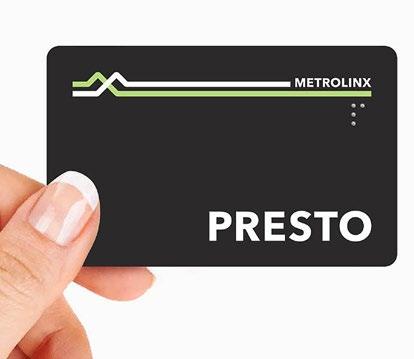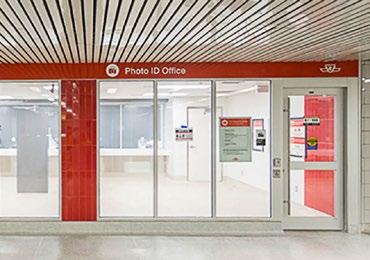

Housing Guide Housing Guide
Niagara College – Toronto
Dear Student,
Welcome to Niagara College – Toronto (NCT)! Our campus of nearly 7000 students from around the world is a thriving academic community in the heart of of Toronto. Details for your budget, costs of living in Toronto, transportation, and more are included in this helpful guide. Please see the Table of Contents for reference.

Introduction
The Housing Support team at Niagara College – Toronto strives to build a network of successful and reliable housing options for all students. Review this guide and all of the advice it contains to ensure a positive living experience in Toronto.
Niagara College – Toronto is easily accessible by the city’s transit system and allows for a variety of housing locations to suit your needs. Once you know where in the city you would like to be located and how you will get to school, you can investigate housing alternatives, costs, and resources for the best housing options. And finally, it’s important to be aware of your rights as a tenant, and you can review those rights in the final section of this guide.
Students are encouraged to arrange their housing accommodations prior to arriving to Canada. If you have any questions about housing while attending NCT or would like more information, please reach out to us at housing@ niagaracollegetoronto.ca

Housing
Average Local Apartment Rentals**:

** The above rental prices were gathered in 2023. Toronto’s rental market is known to fluctuate, so it is always a good idea to check the latest rental report on rentals.ca
Source: Consumer price index portal (statcan.gc.ca)
Budgeting
Cost of living in Toronto
This section contains data on Toronto’s cost of living, rental rates in Toronto, and a warning against scams to assist you in developing a budget. The below chart provides an approximate and rough breakdown based on the research of the Student Services Department and is meant to be used only as a guide.

Some advice on scams
• If a listing or offer seems too good to be true, it probably is.
• Always walk through the unit or request a virtual tour before making a payment or transferring any money to the advertiser.
• If you are doing a virtual tour, ensure that the tour is either live or that the video was taken recently.
• Check necessary documents before sending money or your personal information.
Source: Wellbeing Toronto – City of Toronto
Resources
Searching for housing:
Now that your housing priorities and your budget have been established, you should begin your housing search. In this section, you can learn more about NCT’s housing partner and steps to finding housing.
Other local housing resources:
• Avant
• Tartu College
• Parkside Residence
• CampusOne Residence
• 4Rent
• Gottarent
• Zumper
• liv.rent
• Zolo
Steps to find housing:
Step 1. Request a Viewing:
• Use a formal email address.
• RentSeeker
• TorontoRentals
• Viewit
• Sparrow
• Ask any questions you have about the unit or location.
• Make a good first impression.
Step 2. Apply for a Unit:
• Complete a rental application.
• Provide the landlord with a list of good references.
• Give your landlord consent to complete a credit check.

Step 3. Secure Your Unit:
• Sign a Standard Lease.
• Ensure that you have a copy of the lease.
• Pay the first and last month’s rent and sometimes a key.
A Word about Leases
A lease is a contract between you and the landlord. Lease Information should include:
• The move-in date.
• The security deposit.
• The date that rent is to be paid.
• The amount of rent.
• The landlord’s contact information.
• What services are included.
The list provided is for the convenience of Niagara College – Toronto students and Niagara College – Toronto does not recommend or endorse any of the premises listed.
Rights and Responsibilities
Your decision to stay in residence makes you a part of a community. Being a part of that community comes with responsibilities.
As students you are expected to:
• Pay your rent on time.
• Keep your rental unit clean.
• Avoid causing any damage and pay for the repairs of any damage you cause.
• Keep noise to a minimum - parties and music can disturb your neighbours.
• Contact your landlord as soon as you can when there is a serious problem in the unit needing repair or service.
• Respect your neighbour’s right to peace and enjoyment of their property.
• Allow your landlord entry to your space for repairs (with notice).
Dealing with your landlord:
Landlords have several obligations related to owning and providing rental housing. You enter into a legal agreement when you sign a lease to rent a room or apartment. Consequently, your landlord is required to:
• Maintain your home in a good state of repair.
• Provide the utility services (heat, electricity, other) agreed to in the lease.
• Not seize your property without following a proper legal process.

legal help. Each province and territory have laws that govern landlord-tenant relations. As an international student, you are protected by those laws.
Knowing your rights further:
The Residential Tenancies Act (RTA) is a provincial housing law that sets out the relationship between a tenant and the landlord. As a tenant that falls under the RTA, you need to understand your rights. If you have any questions about your tenancy and the RTA, contact the Landlord and Tenant Board or your local legal clinic, both of which can help to provide direction and guidance.

Moving out:
When moving out of your unit, be sure to provide your landlord with written notice of the date that you will vacate your unit. If you want to move out of your unit before your lease is over, you will have to break your lease. Start by talking with your landlord to come to an agreement. If this is not possible, you will need to consider subletting your unit or an assignment. It is important to understand what responsibilities are required of you under both circumstances. Always check with your landlord to find out if they allow subletting or assignment. For more information about getting out of rental agreements, click here.
Being a good neighbour
As a tenant, it is also a good idea to develop a friendly relationship with your neighbours. Follow these tips:
• Say hello and introduce yourself to people you see frequently.
• Keep your apartment clean and organized to avoid bad smells and pets.
• Know your trash days and always take out the garbage on time.
• If you own a pet, always clean up after them inside and outside your apartment.
• If you have a party, remember that the city of Toronto does not permit noise on weekends after 11 p.m. Check with your landlord to ensure that you won’t cause any problems.
Other resources:
• Moving to Toronto
• City of Toronto
• Toronto Festivals & Events Calendar
• Landlord & Tenant Board
• International students settling in Ontario
• Problems with Landlords/Rentals
• Cycling in Toronto
• Getting a drivers license
• Fire prevention and safety training module
Transportation
Access to public transit should be one of your top priorities while looking for a home. Travel times and using the Greater Toronto Area’s (GTA) public transportation system, PRESTO Cards, and Go Transit are all covered in this section.
The GTA’s Public Transit Systems:

The Toronto Transit Commission (TTC) serves the people of Toronto by ensuring your transit system is reliable, safe, and clean. To use the TTC, you will have to purchase a pass, a ticket, or a PRESTO card with the Post Secondary Student Monthly pass.
For more information on TTC monthly pass and Go Transit discount, please follow the steps described in the following QR codes
TTC Monthly pass Go Transit discount


PRESTO Cards:
A PRESTO card lets you travel across 11 different transit agencies in Ontario. To get the student discount for your PRESTO card you will have to get a post-secondary photo identification card first.









